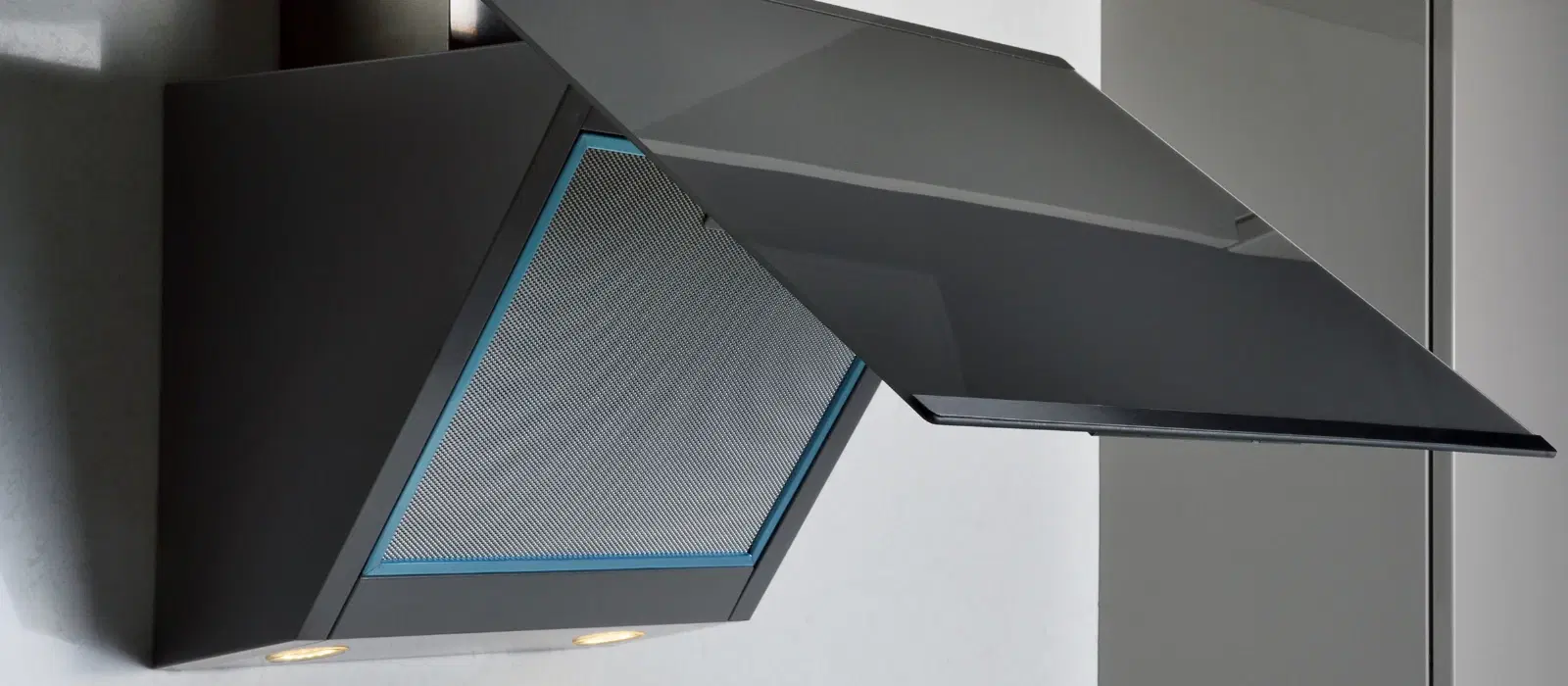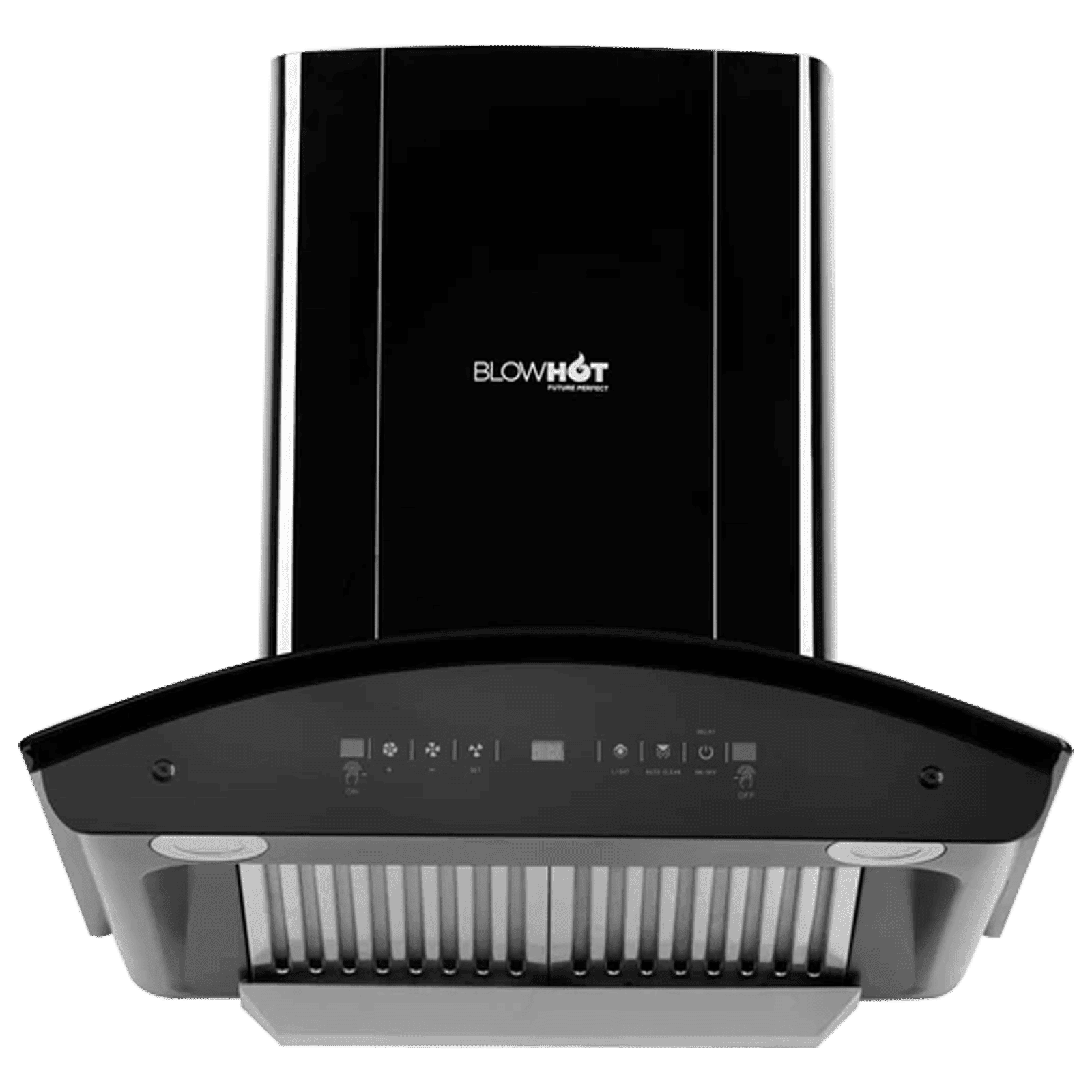
Home Appliances
•04 min read

Buy Electrolux UltimateTaste 500 90cm 1200m³/hr Ducted Wall Mounted Chimney with Touch Control Panel (Black) online at best prices from Croma. Check product details, reviews & more. Shop now!
Did you know that selecting the right Kitchen Chimney outlet pipe size can significantly impact your chimney’s efficiency and performance? Whether you are installing a new unit or upgrading your current setup, understanding the dimensions is the cornerstone for seamless ventilation and operation. In this guide, we explore the essential checklist that will help homeowners, designers, and installers make a well-informed decision on the ideal pipe measurements for a Kitchen Chimney.
The kitchen chimney outlet pipe size plays a pivotal role in how well the appliance expels smoke and fumes. The right dimensions ensure enhanced airflow, optimal suction power and effective smoke expulsion. An undersized pipe may lead to smoke buildup and reduced efficiency, while an oversized one can result in poor performance and noise disturbances. As such, choosing the best pipe size for kitchen chimney use has direct implications on both the functionality and comfort of your cooking environment.
Every chimney comes with specific installation requirements, and the outlet pipe size must align with the appliance’s specifications. Ensuring compatibility means that the dimensions you select complement the overall design and performance of the kitchen chimney. Following manufacturer guidelines related to kitchen chimney pipe dimensions is crucial to obtain a cohesive system that not only looks appealing but also performs reliably.
When it comes to standard chimney outlet pipe size, the most common diameters are 4 inches and 6 inches. These dimensions are expressed in inches, feet, and even millimetres to suit regional installation norms. For smaller kitchens or compact installations, a 4-inch pipe might suffice. However, most residential and commercial kitchens looking for efficient operation often prefer a 6-inch measurement to handle larger volumes of exhaust.
Below is a simple overview of how different pipe sizes apply to various settings:
Pipe Diameter | Typical Application | Dimensions |
|---|---|---|
4 inches | Compact kitchens | Approx. 102 mm |
6 inches | Standard residential installations | Approx. 152 mm |

Buy BLOWHOT ERICA TAC MS PLUS 60cm 1450m3/hr Ductless Auto Clean Wall Mounted Chimney with Motion Sensor (Black) online at best prices from Croma. Check product details, reviews & more. Shop now!
Experts suggest that the kitchen chimney outlet pipe size should take into account the overall kitchen layout and the chimney’s power. An ideal size recommendation for most kitchens is a pipe with a 6-inch diameter, balancing effective smoke expulsion with minimal noise. This determination is made based on typical kitchen dimensions and airflow requirements, helping to deliver both functionality and a pleasing visual design.
Before settling on a specific kitchen chimney vent pipe size, consider several factors. First, evaluate the overall size and layout of your kitchen to determine the volume of air that must be moved. Additionally, the type of chimney—whether ducted or ductless—plays a significant role. Also, measure the distance between the chimney and the outlet vent, as longer distances might require adjustments in size or additional measures to maintain efficiency.
Beyond size, the material used for the chimney pipe affects both its longevity and installation quality. Materials such as aluminum and stainless steel are popular choices due to their durability and ease of maintenance. Opting for high-quality materials ensures that the ideal size for chimney outlet pipe not only fits the installation requirements but also withstands the rigours of continuous use.
It is equally important to carefully align the pipe’s hole size with the actual outlet pipe dimensions. A precise fit helps avoid issues during installation, such as leaks or improper sealing. Accurate measurements and planning can mitigate the risk of installation errors, ensuring that the chimney duct size guide is adhered to perfectly during setup.
Pro Tip: Ensure Optimal Chimney Performance
Always consult your appliance’s guidelines when selecting the outlet pipe size. For most modern kitchens, a 6-inch diameter pipe is considered ideal for efficient smoke expulsion and minimal noise.
Begin by measuring the required dimensions accurately to ensure the outlet pipe matches the exact kitchen chimney outlet pipe size prescribed for your unit. Next, prepare the installation site by ensuring the hole or duct opening is slightly larger than the pipe diameter for easy fitting. Carefully secure the pipe, ensuring an airtight seal and smooth alignment with the chimney. These steps collectively contribute to a hassle-free installation, helping to maintain optimal performance.

Buy FABER SUNNY IN HC SC FL LG 60cm 1200m3/hr Ducted Auto Clean Wall Mounted Chimney with Touch & Gesture Control (Black) online at best prices from Croma. Check product details, reviews & more. Shop now!
One common oversight is using a pipe that does not match the specified dimensions, be it too small or too large, which can lead to inefficiencies such as reduced suction and smoke accumulation. Additionally, incorrect placement of exhaust vents can disrupt airflow and prolong installation issues. Adhering strictly to measurements and guidelines can help avert these pitfalls.
Regular maintenance is crucial for longevity. Periodically inspect the chimney pipe for blockages or leaks. Keeping the duct clear of debris ensures that the chimney exhaust pipe diameter functions as intended, aiding in uninterrupted airflow. A well-maintained pipe not only boosts performance but also extends the appliance’s lifespan.
The size typically ranges between 4 and 6 inches in diameter, depending on the model and the kitchen requirements.
A 4-inch pipe is suitable for compact or smaller kitchens; however, many standard systems recommend a 6-inch pipe for optimal performance.
A 6-inch diameter is most often considered the standard in residential kitchens.
The hole should match the pipe diameter, generally about 6 inches, with a slight allowance for adjustments during installation.
Choosing the right kitchen chimney outlet pipe size is instrumental in achieving proper ventilation, efficient smoke expulsion, and long-term reliability of your kitchen setup. By following the guidelines and checklist presented in this blog, you can confidently determine the optimum pipe dimensions that meet your kitchen’s needs. Remember, careful measurement, adherence to standard dimensions, and regular maintenance go a long way in ensuring that your chimney system performs seamlessly. For additional expert tips and industry insights, keep exploring our resources and stay updated on the latest best practices in installation and maintenance.
In a world where every detail counts, a well-matched pipe can make all the difference in the overall performance of your kitchen appliance. With an eye on efficiency and durability, let this checklist serve as your go-to reference for all things related to chimney pipe measurements and installation guidelines.